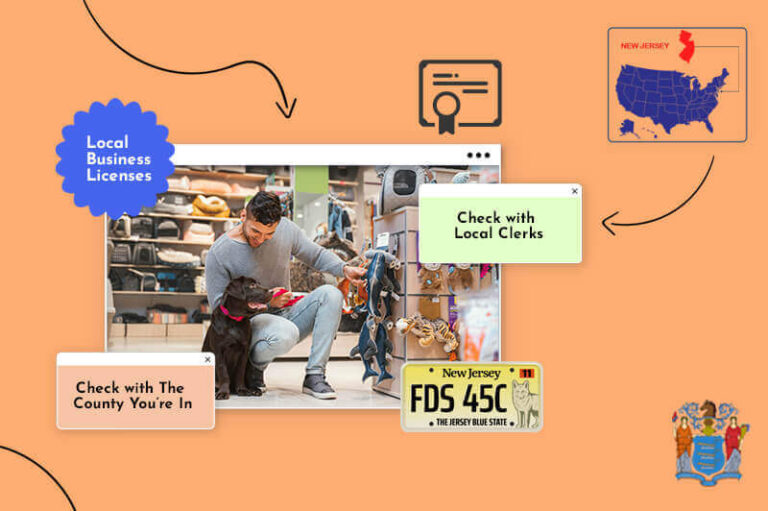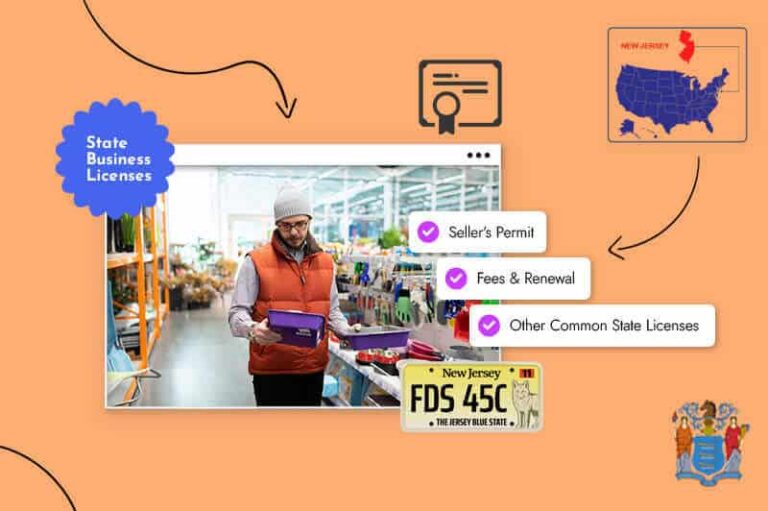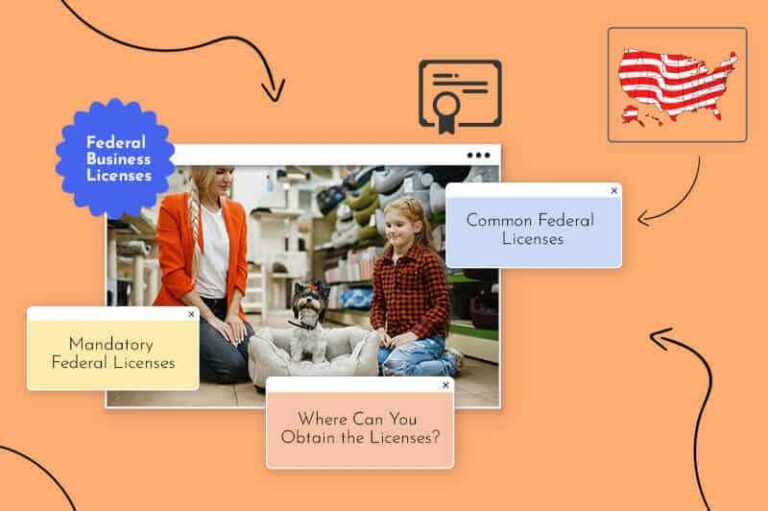
New Jersey doesn’t require you to have a general state license to start a business. However, it does require most businesses to pay certain taxes and some businesses—depending on the industry—to obtain permits and licenses.
Additionally, some cities and counties might require additional licenses, permits, or even zoning clearances. Certain zones in New Jersey require additional “permits” in the form of taxes, usually for entertainment and lodging.
On the other hand, the Garden State also has Urban Enterprise Zones, where taxes are lower.
Registering an LLC in New Jersey is easy. In short, choose a business name, appoint a registered agent, file the Certificate of Formation, and obtain an Employer Identification Number (EIN).
Figuring out which permits and licenses you need is trickier simply because they are issued according to industry type and local jurisdiction rules and regulations.
We’ll try to simplify obtaining business permits and licenses for you.

State and local governments issue business permits and licenses to create income for the municipality. You cannot operate the business if you do not obtain the proper permits and licenses. A license gives you permission to conduct business, while a permit is a legal document that the state issues to ensure you adhere to safety issues.
The best way to determine whether your business needs a business license is to check New Jersey’s official website. In most cases, licenses are based on industry. For example, a business accountant needs a business permit, while a Certified Public Accountant needs a CPA certificate.
Before you start your business, check with the city, county and state for special licenses you might need. Don’t forget to check your local jurisdictions for permits.
The city and county where you do business might have regulations and requirements for certain businesses to obtain permits. Some of these permits are industry-related, while others are required for all businesses, regardless of the industry.
Some of the permits you might need include:
How you register for a business license or a permit depends on the county and city where you set up your business. Most counties and cities will allow you to apply online. Start at the state level to see if you need state-mandated permits and licenses.
Proceed to your county government website to find local licenses and permits.
Certain types of businesses must have licenses to operate. If a business allows a permit to lapse or does not initially obtain a permit, the issuing agency could levy civil and criminal penalties on the business.
For example, home improvement contractors must register to make home improvements. If the contractor does not register or allows the license to expire without renewing it, it could face civil and criminal penalties.
Since local governments have their own regulations and licensing requirements, including zoning ordinances, building codes, and leasing laws, you should always check with the local government before you begin operating.
Always check with the city and county for business license and permit requirements. Some cities and counties have more than others. For example, Camden has a list of over 40 permits for businesses.
You will also need to check with the county government websites and county clerk for additional licensing and permit requirements. For example, Atlantic County put together a handy document to help you locate regulations, permits and licenses required in the county.

The state might require licenses for all businesses and businesses in certain industries. For best results, look for industry-specific licenses in addition to general licenses and permits, such as the seller’s permit.
New Jersey considers anyone who sells tangible personal property or services to be a vendor. Tangible personal property is anything you can use, including groceries, cleaning supplies, furniture, vehicles, construction materials, etc.
All vendors, even those who sell goods and services at craft shows, flea markets, music events, bazaars, trade shows, gun shows and fairs, must obtain a vendor’s permit—a seller’s permit—and collect sales and use taxes on taxable sales, including online sales of services and products delivered to New Jersey.
Vendors must register with New Jersey at least 15 days prior to engaging in any business activity. Vendors can register and pay taxes through the Division of Revenue and Enterprise Services.
After you register, the state will forward you a New Jersey Business Registration Certificate. Some businesses will require a Certificate of Authority. The state will also forward that, if necessary, so you can collect sales tax. The Certificate of Authority is issued by the New Jersey Division of Taxation.
Vendors must:
If you do not remit the taxes by their due dates, New Jersey will assess penalties and interest.
New Jersey does not charge a fee for the vendor’s license. The license does not expire; thus, it cannot be renewed.

Depending on your business’s industry, you might have to apply for federal permits. The Small Business Administration has a page outlining federal permits.
Some of the common federal licenses you might need include:
When checking for federal licenses, you will most likely need to check the relevant regulator.
Most licensing and permitting agencies will require certain information. Some might ask for certain pieces of information, and others might want all of the following information:
If you start at the federal level and work your way down to the state, then county and city levels, you’ll find it easier to ensure that you have all of the permits and licenses you need to do business in New Jersey.
If you are not sure whether you have all the licenses and permits after going through all the levels, the county clerk’s office may be able to point you in the right direction. Once you receive all of your permits, your business will be legal throughout New Jersey.

This portion of our website is for informational purposes only. Tailor Brands is not a law firm, and none of the information on this website constitutes or is intended to convey legal advice. All statements, opinions, recommendations, and conclusions are solely the expression of the author and provided on an as-is basis. Accordingly, Tailor Brands is not responsible for the information and/or its accuracy or completeness. It also does not indicate any affiliation between Tailor Brands and any other brands, services or logos.
Products
Resources
@2024 Copyright Tailor Brands